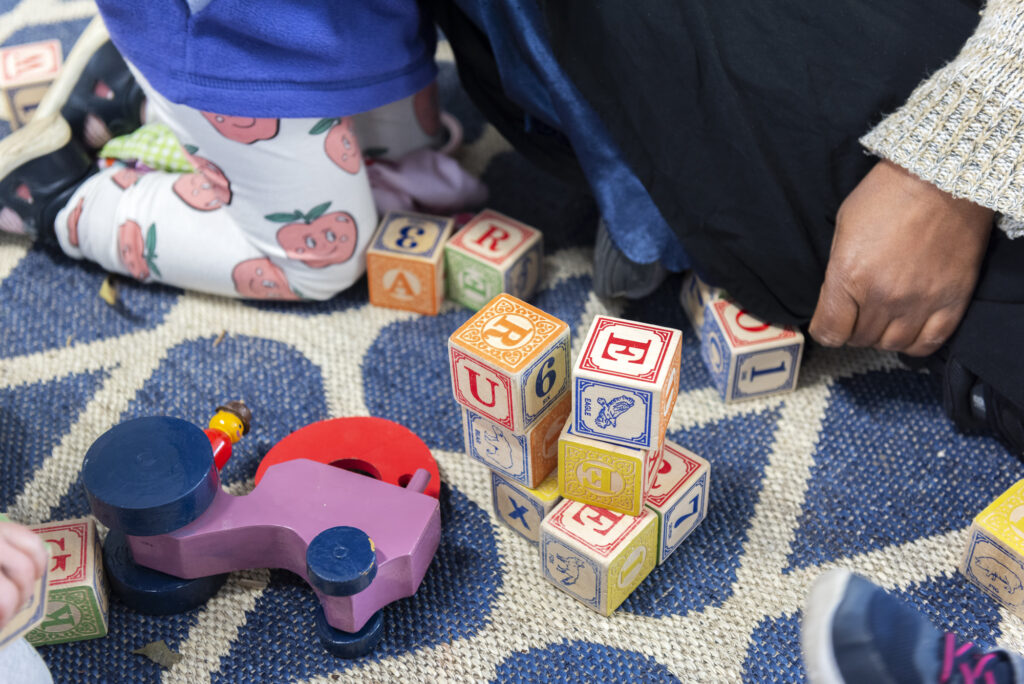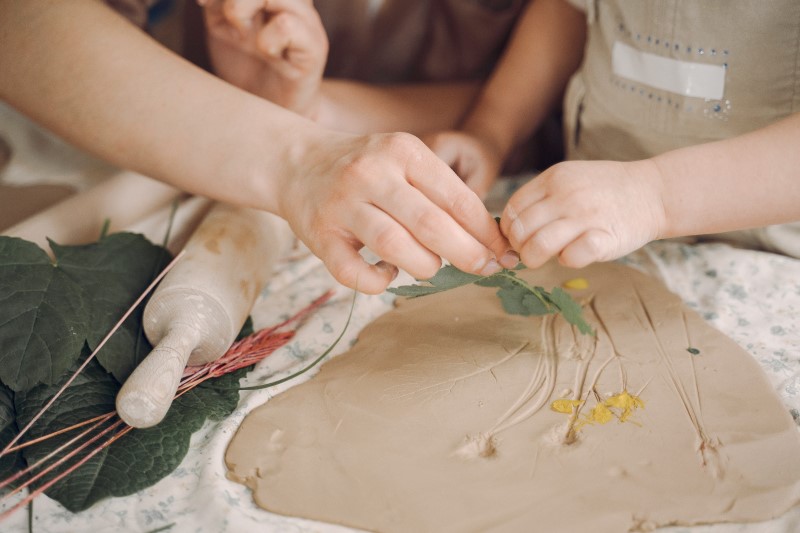This article was first published in the Autumn 2023 edition of Community Childcare Association’s (CCC) Roundtable magazine.
Educators at Gowrie Victoria Carlton Learning Precinct wanted to provide the best support possible for their children with trauma backgrounds. Through School Readiness Funding, the service accessed CCC’s Trauma-Informed Early Childhood Training and Professional Conversations Package, allowing Early Years Leader, Nethmi, and Leadership Support, Luisa, to complete a four-month program with CCC consultant, Caitlin. Here, Nethmi and Luisa reflect on their learnings and the positive outcomes for the educators, children and families in their community.
Roundtable: Can you tell us about Gowrie Carlton Learning Precinct?
Nethmi: Our service supports a community that is diverse in needs and circumstance, so we have some children attending from challenging backgrounds. We support our children emotionally and work towards developing their social, physical and academic skills.
Luisa: We have long day care and sessional programs and our children come from all walks of life, so they can be very different from one another. They have different strengths and needs. You must have a large skill set to work at this service.
What prompted you to take up a learning opportunity with CCC?
Luisa: Because some of the children come to us with trauma and difficult stories, we were all asking for professional development. We needed to build more knowledge to be able to support these children as best we can.
Nethmi: Yeah, similar for me. I’ve done my Bachelor of Early Childhood Education, but we didn’t learn about children with trauma backgrounds or complex care needs. Some of my team members, including myself, were struggling with knowing the best way to approach some tough situations.
Even if you have five children who have experienced similar trauma, their responses are going to be completely different. You need to have a pool of strategies and learning experiences that are specific to each child’s needs.
Before starting your program, what were your goals?
Luisa: My first goal was to grow in knowledge. I had three children in my room who sometimes had reactions that were threatening to themselves and the rest of the community – so I really needed to learn more about trauma. The second goal was to spread this knowledge within the team so we could build a common understanding of how to approach these situations.
Nethmi: My goals were similar to Luisa’s – I wanted to understand more about acute, chronic and complex trauma, and how these different types of trauma impact children’s development, so we could find the best way to support these children. We needed a professional to guide us through it. Caitlin did exactly that and was like a therapist for us!
Luisa: Yeah, our coaching sessions with Caitlin really linked the theory with our reality. Caitlin visited the service to look at what was happening, then in our sessions we would discuss what the children might be trying to communicate through specific behaviours, and what strategies we could apply.
Nethmi: She really personalised the content because our situation would change every week and children’s triggers could change every day.

What were some of your major learning outcomes?
Luisa: To take things less personally. Having more knowledge of trauma-related behaviours means you can put that knowledge first and feel less personally affected by the situation.
Another thing was to see more possibilities for how to prepare for these behaviours before the children arrive. Like, what experiences could we set up in advance to help them navigate the day? Also, I learnt to approach challenging situations in a more assertive way. When children are experiencing heightened emotions, they need support instead of someone just trying to calm them down.
Nethmi: For me, it was learning to identify when my children were going to respond in a freeze, flight or fight manner and better understanding their triggers and non-verbal cues. My whole team was able to get on top of environmental triggers – is it a smell, noise or something someone might have said to the child? – and support the child before things progressed to those big emotional reactions. I’ve also become more self-aware in challenging situations and I’m able to change small things, like my body language, to ensure I don’t trigger the child even more.
Luisa: Exactly, I can now see a wider range of possibilities to approach certain situations and I know the theory behind them. I’ve been able to sit down with other educators and say ‘look, this behaviour is happening because of this part of the child’s brain development’.
Nethmi: When it’s a really challenging day, sometimes you may feel like, this is how it’s going to be for the rest of the year, no matter what we do, it’s not going to work. But after learning about why children might behave in certain ways, my team and I don’t feel hopeless anymore. Even the smallest progress, such as a child learning to share or take turns, now feels like the light at the end of the tunnel.
The training has supported me and my team in a very positive way. We reflect almost every day: What worked today and what can we change for tomorrow?

How have your learnings impacted the lives of children and families?
Luisa: There’s one child in particular who we’ve seen lots of positive changes from recently, and I think that’s partly because we have a more accurate approach to supporting their needs.
Nethmi: We used to give one child everything they wanted to avoid an emotional reaction. But we’ve learnt how to apply boundaries and allow the child to start self-regulating. Over the course of the year, this child has built incredible connections with their peers, educators and the community and learnt to socialise with others in a safe manner – which are lifelong skills. It has been an amazing thing to watch and walk through that journey alongside them.
We’ve been able to share the strategies and behaviour plans we’ve created for children with their external link services and family members. We’ve witnessed and received feedback that what we’ve been doing really does work. And having that consistency as children move through life outside the service is very beneficial for them.
Luisa: If the child is feeling like they have a better time here, they’re going to want to come back, and they’ll be in a better disposition and mood when they go home. That definitely has positive impacts on the wellbeing of the family. Families have told me that children’s behaviour at home has improved and they’re grateful to have clear strategies that we can manage from both sides.
What advice would you give to other services in your shoes?
Luisa: To give educators professional development opportunities in trauma- informed practice.
Nethmi: Have hope – building up your knowledge of trauma and appropriate strategies does work! I think this training is something everyone should do, even if they don’t work with children with trauma. It gives you such a big insight into the world, not just the children you directly work with. It opens your mind and builds your capacity to understand and empathise with others in your immediate and wider community.
To learn more about Community Child Care Association, visit https://www.cccinc.org.au/